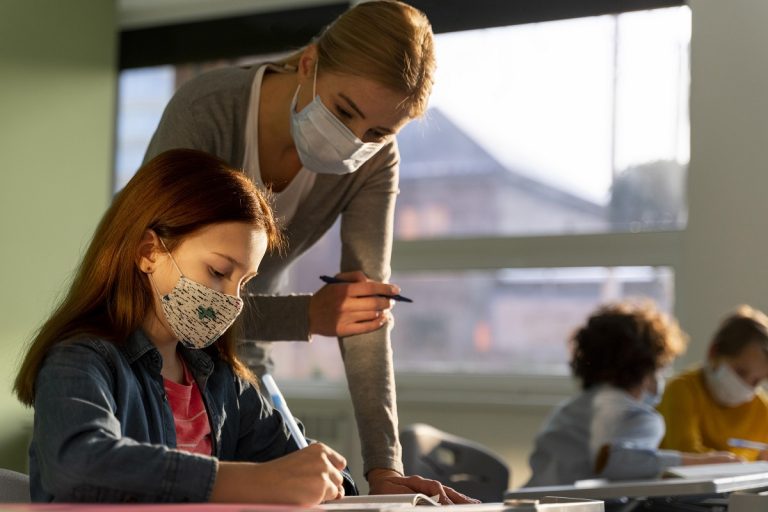The government has approved the Ministry of Health’s safety guidelines for the beginning of the school year, including rules related to the wearing of masks and comprehensive preventive testing. The cabinet also discussed the rules for sporting and cultural events. Photo Credit: Freepik / Illustrative Photo.
Czech Rep., Aug 18 (BD) – The Czech government on Monday approved anti-epidemic guidelines for schools drawn up by the Ministry of Health for the new school year. The guidelines, valid from August 31st, include comprehensive preventive testing at the beginning of the school year and also define the rules for wearing nose and mouth protection.
Comprehensive preventive testing will take place in the first two weeks after the beginning of the school year, in order to detect the coronavirus among students after the holidays. The guidelines also stipulate when facemasks must be worn, in particular the regime for children attending the so-called preparatory years.
“The smooth running of the school year is our priority,” explained Minister of Health Adam Vojtěch. “The beginning of the year may be crucial for the development of the current epidemiological situation. I, therefore, suggested to the government that pupils undergo comprehensive preventive testing immediately after the start of the school year. Thanks to this, we will be able to catch possible infections from the holidays in time and prevent the spread of the virus.”
The government also discussed changes to the anti-epidemic rules for retail, effective September, including an increase in the maximum number of people at one table in catering facilities, where up to six people can now sit together. The maximum number of choir participants is also expanding, to 50 people.The cabinet also updated the testing rules for sports and cultural events or other regular activities. From September 1st, events with a capacity of up to 3,000 people can be attended by anyone with proof of vaccination, test, or prior illness (OTN). At higher capacities, at least half of the capacity must now be occupied by persons who are fully vaccinated or have previously contracted COVID-19. The remaining part of the capacity can also be occupied by those with negative tests.






